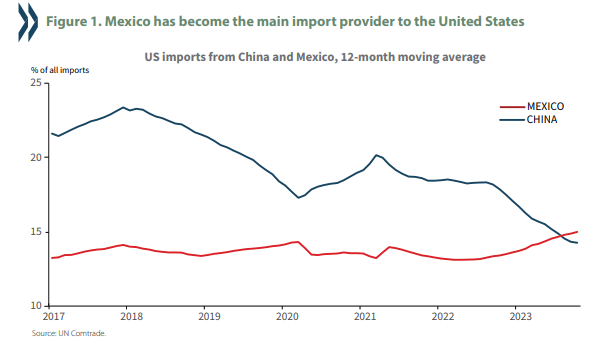GDP growth and nearshoring are opening up new opportunities in Mexico, the OECD said in a report released Tuesday.
Overall, in the OECD’s view, the economy is navigating well in the uncertain global economic environment.
Although core inflation is persistent, headline inflation is gradually receding.

«Mexico has begun to benefit from nearshoring, but to take full advantage of its potential, long-standing challenges, such as low productivity and high inequality, need to be addressed,» the OECD considered.
From its perspective, growth has held up well thanks to resilient domestic demand, while consumption is supported by a strong labor market.
While investment is trending upwards, supported by public infrastructure projects in the south and private investment in machinery, exports have maintained their dynamism.
GDP growth
Mexico’s monetary policy reacted decisively to high inflation. Headline inflation has softened and core inflation, while more persistent, has also gradually declined, although services inflation remains high. On the other hand, the strong appreciation of the peso has helped to contain inflation.
For the OECD, GDP growth is expected to slow to 2.5% in 2024; domestic demand will sustain growth and exports will be affected by the slowdown in the United States.
The OECD also predicted that headline and core inflation will continue to decelerate.
A more pronounced slowdown in the U.S. and more persistent inflation than expected, which will require keeping rates higher for longer, are key downside risks.
On the positive side, the ongoing reconfiguration of global value chains could boost investment more than expected.
Fiscal policy has a strong track record of achieving fiscal targets and keeping public debt low.
However, the OECD said higher tax revenues are needed to maintain fiscal prudence and address important spending needs in productivity-enhancing areas such as education, infrastructure, digital and green transitions, and fighting corruption and crime.
In addition, improving the fiscal framework would make it easier to provide support during recessions.

